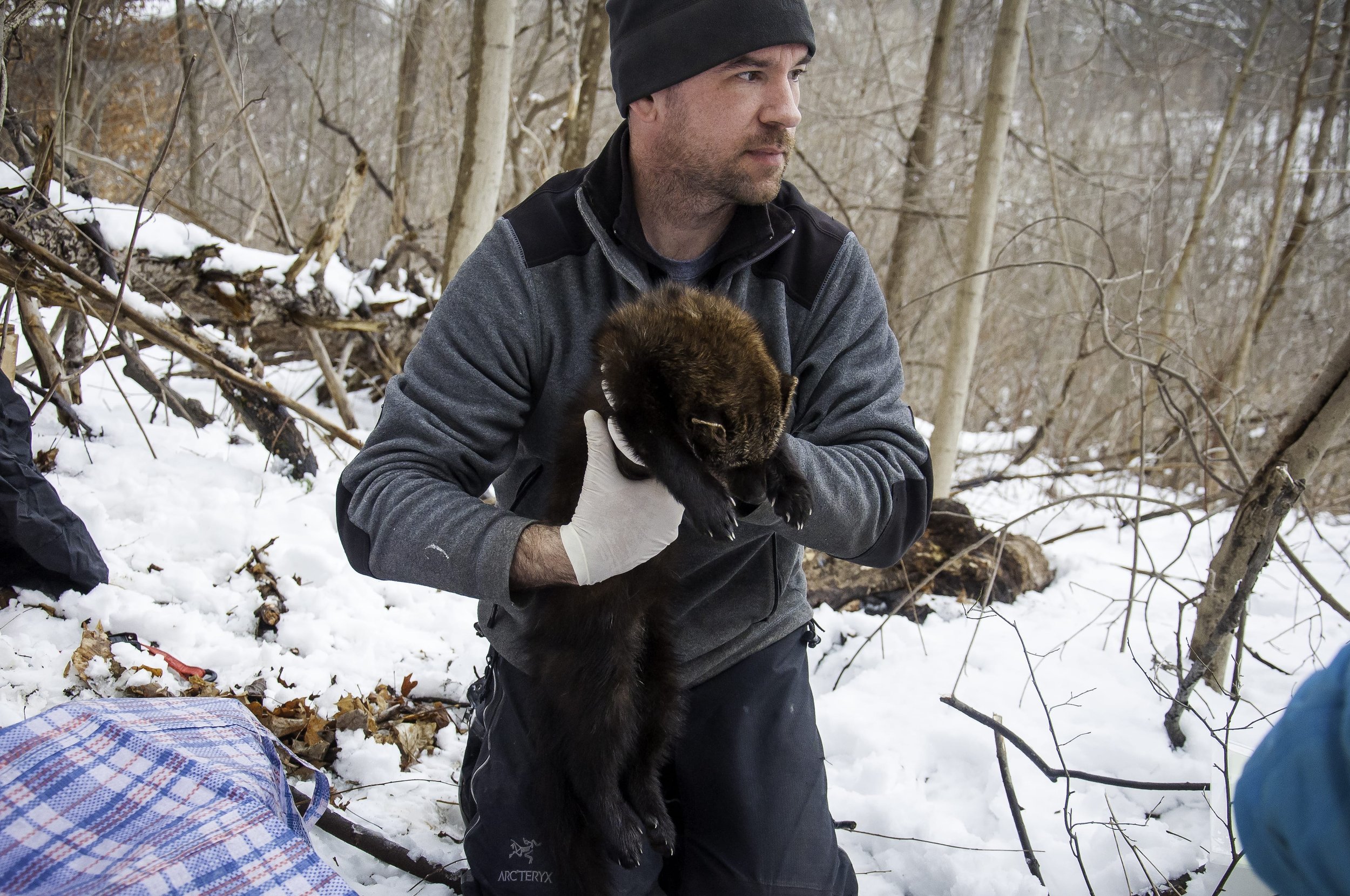Ep. 211 : Fisher Researcher Dr. Scott LaPoint
Recently while tracking a Fisher (Pekania pennanti) in Algonquin Park we encountered a large galloping trail that had a long stride length of 106 cm (41¾ in). This was about 28 cm (10 in) longer than what is recorded in Mark Elbroch's “Mammal Tracks and Sign” (Stackpole, 2019). When I finished measuring, I was discussing this extraordinarily long stride with some colleagues. They told me about a National Geographic article, based on a paper about increasing body sizes and range expansion of Fishers in the Northeast. I was immediately interested. When I got home from Algonquin, I looked the paper up. I read the abstract but I had to find out more so I wrote to the author, Dr. Scott LaPoint, to see if he could help answer my questions and be game for an interview. He was in.
And what a wealth of knowledge! Scott LaPoint was very open to share his research findings on Fishers, on seasonal size changes in the skulls of some small Weasel species (elaborating on Dehnel’s phenomena), as well as the need for wildlife connectivity corridors and Dr. LaPoint’s research throught The Hudson Highlands Wildlife Connectivity Project with Bobcats (Lynx rufus) and Fishers studying how they move throughout the landscape. There was even mention of the New York Times article about a Fisher seen prowling around the Bronx a few years ago.
I am always so grateful to get to talk with the researchers who are doing the work in the field which enables us to learn more about the species we track, trail and encounter, especially the cool mesopredators like Fishers. If you are curious about Fishers, Fisher ecology, or wildlife in general, than this is one to listen to.
And just so you know, the Fisher Scott is holding had just been sedated and he was preparing to do a full work up on her, including attaching a tracking collar. No Fishers were hurt in the making of this podcast.
To learn more :
Scott Lapoint’s website
Scott Lapoint’s twitter page
Mesopredator release facilitates range expansion in fisher
Great description of Dehnel’s phenomena
Weasel-Like Predators Are Reclaiming Territory In The U.S., And Growing Larger - article from Popular Science magazine

